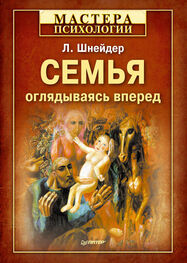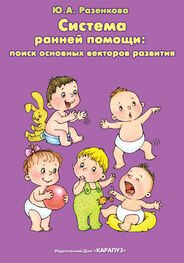Dushenko, T (1981). Cystic fibrosis: Medical overview and critique of the psychological literature. Social Science in Medicine, 15B, 43-56.
Duvall, E. (1957). Family development. Philadelphia: J. B. Lippincott.
Dybwad, G. (1970). Treatment of the mentally retarded: A cross-cultural view. In H. G. Haywood (Ed.), Social-cultural aspects of mental retardation (pp. 560-572). New York: Appleton-Century-Crofts.
Dyer, E. D. (1963). Parenthood as crisis: A re-study. Marriage and Family Living, 25, 196-201.
Dyson, L., & Fewell, R. R. (1986). Stress and adaptation in parents of young handicapped and nonhandicapped children: A comparative study. Journal of the Division for Early Childhood, 10, 25-35.
Dyson, L. L. (1989). Adjustment of siblings of handicapped children: A comparison. Journal of Pediatric Psychology, 14, 215-229.
Edelman, M. W. (1985). The sea is so wide and my boat is so small: Problems facing black children today. In H. P. McAdoo & J. L. McAdoo (Eds.), Black children: Social, educational and parental environments (pp. 72-82). Beverly Hills: Sage.
Edgerton, R. B. (1970). Mental retardation in non-Western societies: Toward a cross-cultural perspective on incompetence. In H. G. Haywood (Ed.), Social-cultural aspects of mental retardation (pp. 532-559). New York: Appleton-Century-Crofts.
Egan, G. (1986). The skilled helper (3rd ed.). Monterey, GA: Brooks/Cole.
Eliades, D. C, & Suitor, G. W. (1994). Celebrating diversity: Approaching families through their food. Arlington, VA: National Center for Education in Maternal and Child Health.
Ellis, A. (1987). Rational emotive therapy: Current appraisal and future directions. Journal of Cognitive Psychotherapy, 1, 73-86.
Ellis, A. (1962). Reason and emotion in psychotherapy. New York: Lyle Stuart.
Ellman, N. S. (1991). Family therapy. In M. Seligman (Ed.), The family with a handicapped child (2nd ed., pp. 369-406). Boston: Allyn & Bacon.
English, R. W. (1971). Correlates of stigma towards physically disabled persons. Rehabilitation Research and Practice Review, 2, 1-17.
Eyer, D. E. (1992). Mother-infant bonding: A scientific fiction. New Haven: Yale University Press.
Fagan, J., & Schor, D. (1993). Mothers of children with spina bifida: Factors related to maternal psychosocial functioning. American Journal of Orthopsychiatry, 63, 146-152.
Falicov, С. J. (1982). Mexican families. In M. McGoldrick, J. K. Pearce, & J. Giordano (Eds.), Ethnicity and family therapy (pp. 134-163). New York: Guilford Press.
Falicov, G. J., & Karrer, В. M. (1980). Cultural variations in the family life cycle: The Mexican-American family. In E. A. Garter & M. McGoldrick (Eds.), The family life cycle: A framework for family therapy (pp. 383-426). New York: Gardener.
Farber, B. (1959). Effects of a severely mentally retarded child on family integration. Monographs of the Society for Research in Child Development, 24 (2, Serial No. 71).
Farber, B. (1960a). Family organization and crisis: Maintenance of integration in families with a severely mentally retarded child. Monographs of the Society for Research in Child Development, 25 (Whole No. 75).
Farber, В. (1960b). Perceptions of crisis and related variables in the impact of a retarded child on the mother. Journal of Health and Social Behavior, 1, 108-118.
Farber, B. (1975). Family adaptations to severely mentally retarded children. In M. J. Begab & S. A. Richardson (Eds.), The mentally retarded and society: A social science perspective (pp. 247-266). Baltimore: University Park Press.
Farber, В., &: Lewis, M. (1975). The symbolic use of parents: A sociological critique of educational practice. Journal of Research and Development in Education, 8, 34-41.
Farber, В., Mindel, С. H., & Lazerwitz, B. (1976). The Jewish American Family. In С. H. Mindel & R. W. Habenstein (Eds.), Ethnic families in America: Patterns and variations (pp. 347-378). New York: Elsevier.
Farber, В., & Ryckman, D. B. (1965). Effects of a severely mentally retarded child on family relationships. Mental Retardation Abstracts, 11, 1-17.
Featherstone, H. (1980). A difference in the family: Life with a disabled child. New York: Basic Books.
Feigon, J. (1981). A sibling group program. Sibling Information Newsletter, 1, 2-3.
Femminella, F X., & Quadangno, J. S. (1976). The Italian-American family. In G. H. Mindel & R. W. Habenstein (Eds.), Ethnic families in America: Patterns and variations (pp. 62-88). New York: Elsevier.
Ferhold, J. В., & Solnit, A. (1978). Counseling parents of mentally retarded and learning disordered children. In E. Arnold (Ed.), Helping parents help their children (pp. 157-173). New York: Brunner/Mazel.
Fewell, R (1986). A handicapped child in the family. In R. R. Fewell & R F Vadasy (Eds.), Families of handicapped children (pp. 3-34). Austin, TX: Pro-Ed.
Fewell, R. R. (1991). Parenting moderately handicapped persons. In M. Seligman (Ed.), The family with a handicapped child (2nd ed., pp. 203-232). Boston: Allyn & Bacon.
Fewell, R. R., & Gelb, S. A. (1983). Parenting moderately handicapped persons. In M. Seligman (Ed.), The family with a handicapped child: Understanding and treatment (pp. 175-202). Orlando, FL: Grune & Stratton.
Figley G. R., & McGubbin, H. I. (1983). Stress and the family: Vol. 2. Copingwith catastrophe. New York: Brunner/Mazel.
Fish, T (Producer). (1993). The next step. [Videotape]. (Available from Publications Office, Nisonger Center, UAR 434 McCampbell Hall, The Ohio State University, 1581 Dodd Dr., Columbus, OH 43210.)
Fitzpatrick, J. P. (1976). The Puerto Rican family. In С H. Mindel & R. W. Habenstein (Eds.), Ethnic families in America: Patterns and variations (pp. 192-217). New York: Elsevier.
Foley, Y D. (1975). Family therapy with black disadvantaged families: Some observations on roles, communication and technique. Journal of Marriage and Family Counseling, 1, 29-38.
Folkman, S., Lazarus, R., Dunkel-Schelter, C, DeLongis, A., & Gruen, R. (1986). The dynamics of a stressful encounter: Cognitive appraisal, coping and encounter outcomes. Journal of Personality and Social Psychology, 50, 992-1003.
Forrer, G. R. (1959). The mother of a defective child. Psychoanalysis Quarterly, 28, 59-63.
Fox, R. (1959). Experiment perilous. Glencoe, IL: Free Press.
Fracasso, M. P. (1994). Studying the social and emotional development of Hispanic children in the United States. Zero to Three, 15, 24-27.
Francis, Y, Korsch, B. M., & Morris, M. J. (1968). Gaps in doctor-patient communication: Patients' response to medical advice. New England Journal of Medicine, 280, 535-540.
Franklin, A. J., & Boyd-Franklin, N. (1985). A psychoeducational perspective on black parenting. In H. R McAdoo & J. L. McAdoo (Eds.), Black children: Social, educational, and parental environments (pp. 194-210). Beverly Hills: Sage.
Freedman, D. G. (1981). Ethnic differences in babies. In E. M. Hetherington & R. D. Parke (Eds.), Contemporary readings in child psychology (2nd ed., pp. 6-12). New York: McGraw-Hill.
Freidson, E. (1961). Patient's views of medical practice. New York: Russell Sage Foundation.
Freidson, E. (1970). Professional dominance. Chicago: Aldine.
Freud, S. (1936). Inhibitions, symptoms and anxiety. London: Hogarth Press.
Friedlander, S. R., & Watkins, С. E. (1985). Therapeutic aspects of support groups for parents of the mentally retarded. International Journal of Group Psychotherapy, 35, 65-78.
Читать дальше



